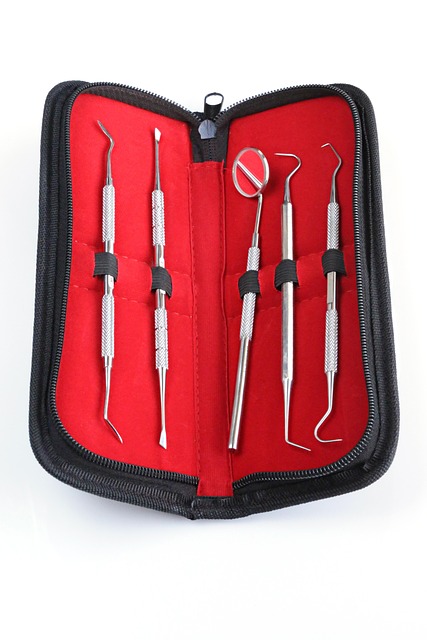Dentist liability coverage (dental malpractice insurance) protects dental professionals from financial loss due to patient care negligence or errors. It covers diagnostic mistakes, treatment blunders, and omissions leading to harm, mitigating legal fees and potential disasters. Specialized policies for dental practices include professional, general, and workers' compensation insurance. Adequate coverage safeguards against risks, claims, and reputational damage. Evaluating deductibles, limits, and insurer stability ensures comprehensive protection tailored to individual practice needs.
In the dynamic landscape of dental care, ensuring comprehensive protection against potential liabilities is paramount for dentists. This article serves as a guide to navigating the intricate world of DDS-focused liability insurance options. From understanding the basics of dental malpractice coverage to comparing policies and exploring legal protections, we delve into essential strategies for risk management. Discover how tailored dentist liability coverage can safeguard your practice and provide peace of mind in this fast-paced environment.
- Understanding DDS Liability Insurance Basics
- Types of Coverage for Dental Practices
- Risk Management Strategies for Dentists
- Comparing Policies: Deductibles and Limits
- Legal Protections: What Your Policy Covers
- Choosing the Right DDS Liability Insurer
Understanding DDS Liability Insurance Basics

Dentist liability coverage, also known as dental malpractice insurance, is a crucial safety net for dental professionals. It protects dentists and their practices from financial loss in the event of a lawsuit due to alleged negligence or errors in patient care. This type of insurance covers various aspects of dental practice, including diagnostic errors, treatment mistakes, and omissions that result in harm to patients.
Understanding the basics of dentist liability coverage is essential for any dental practitioner. The policy typically includes both defense costs and settlement expenses. Defense costs cover the legal fees associated with defending against a malpractice lawsuit, while settlement expenses refer to the monetary compensation paid to the plaintiff if the claim is valid. By availing this insurance, dentists can have peace of mind, knowing that their practice is protected against potential financial disasters resulting from medical errors or patient complaints.
Types of Coverage for Dental Practices

Dental practices require specialized insurance to protect against potential risks and liabilities. When it comes to DDS-focused liability insurance, there are several types of coverage options available tailored to address distinct aspects of dental practice operations. One of the primary concerns for dentists is professional liability insurance, often referred to as “malpractice” coverage. This protects the dentist from claims of negligence or improper treatment, ensuring financial security if a patient sues due to an adverse dental event.
Additional coverages include general liability insurance, which safeguards against non-dental-specific claims like property damage or personal injury on the practice premises, and workers’ compensation insurance, mandatory in many jurisdictions, covering employee injuries or illnesses related to work. For more comprehensive protection, some policies combine these into a dental practices package, offering peace of mind by consolidating multiple coverage types under one policy, simplifying management and potentially reducing overall costs for dentist liability coverage.
Risk Management Strategies for Dentists

Dentists, like any healthcare professionals, face unique risks in their practice. Effective risk management strategies are essential to mitigate potential liabilities and protect their dental practices. One crucial aspect is obtaining adequate dentist liability coverage, which acts as a shield against financial losses arising from medical malpractice claims. This insurance safeguards dentists from significant financial burdens and reputational damage that may result from accidents or errors during dental procedures.
Risk management doesn’t stop at insurance. Dentists should also implement rigorous protocol for patient consent, informed comprehension, and documentation. Keeping detailed records of patient history, treatment plans, and outcomes can serve as a defense mechanism in case of disputes. Additionally, staying updated with continuing education courses focused on risk prevention and best practices ensures dentists are equipped to deliver safe and quality care, further reducing potential liability risks.
Comparing Policies: Deductibles and Limits

When comparing dentist liability insurance policies, two key factors to consider are deductibles and limits. Deductibles represent the amount a dentist must pay out-of-pocket before their insurance coverage kicks in. Lower deductibles mean less financial burden upfront, but higher premiums over time. Conversely, higher deductibles typically correspond with lower monthly payments but require a larger financial commitment in case of a claim.
Limits refer to the maximum amount the insurer will cover for specific claims or overall policy periods. Higher limits offer greater protection against substantial lawsuits or multiple claims. Ensure that your chosen policy’s limits align with your practice’s risks and potential liabilities, such as medical malpractice suits or damage to patient property. Comparing these aspects allows dentists to tailor their coverage to meet individual needs while managing financial risks effectively.
Legal Protections: What Your Policy Covers

Dental professionals, especially those offering specialized procedures, need comprehensive dental liability coverage to protect themselves from potential risks and lawsuits. A DDS-focused liability insurance policy offers crucial legal protections, ensuring that your practice is shielded against claims of malpractice, negligence, or injury caused during dental treatments. This includes coverage for diagnostic errors, treatment missteps, and even unexpected complications arising from routine procedures.
The scope of dentist liability coverage varies among providers and policies but generally encompasses medical expenses for patients harmed by dental care, legal fees incurred during defense against lawsuits, and potential settlements or judgments awarded to plaintiffs. By investing in such insurance, DDS practitioners can focus on delivering quality patient care while being assured that their practice’s financial health is secured against the ever-present risk of litigation.
Choosing the Right DDS Liability Insurer

When selecting a DDS-focused liability insurer, it’s crucial to consider several factors. Look for providers specializing in dental malpractice insurance, as they offer tailored coverage options specific to the unique risks faced by dentists. Verify their financial stability and market reputation to ensure claims are settled promptly and effectively.
Additionally, evaluate the scope of dentist liability coverage offered. Key aspects include professional liability, general liability, and excess liability. Ensure the policy aligns with your practice’s needs, covering potential claims from negligence, property damage, or personal injury. Compare policies and quotes from various insurers to find the best combination of coverage, exclusions, and premium costs for your dental practice.
